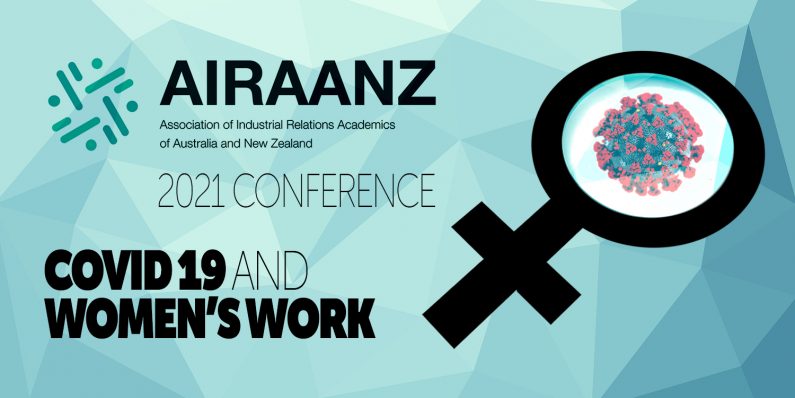Covid-19 and Women’s Work Symposium
The COVID-19 pandemic has the potential for having profound economic and social consequences in Australia and globally and has particular impact on women. This is because of women’s roles both in the labour market (in many ‘essential’ occupations, eg. aged care, and being over-represented among part-time and casual workers) and in the household (where women’s ‘double shift’ at work and home can interact strongly with home-working arrangements for workers during the pandemic). For example, according to Cooper and Mosseri (2020), women have been disproportionately impacted financially in terms of paid work, while Collins et al (2020) point to their having experienced increases in unpaid work due to care giving and schooling needs. The IMF states that the pandemic will roll back 30 years of progress in terms of narrowing the gender pay gap, and has exacerbated the already existing inequalities in the labour market, particularly as women are segmented into occupations that are more vulnerable to casualised employment or affected by social distancing requirements (IMF 2020a, 2020b).
Elizabeth Hill (University of Sydney) & Sara Charlesworth (RMIT University/CRIMT)
Work + Care in a gender responsive recovery: A bold policy agenda for a new social contract
Emilie Genin & Melanie Laroche (Université de Montréal/CRIMT)
The effects of the COVID-19 pandemic on the working conditions and employment trajectories of women in Quebec: between hope and despair
David Peetz (Griffith University/CRIMT) et al. (various universities)
Working from home during the COVID-19 pandemic: a cross-national study of women in universities
Linda Colley (CQ University) & Sue Williamson (UNSW Canberra)
Working from home during the pandemic: the experience of men and women public servants
Watch this symposium co-hosted by David Peetz (Griffith University/CRIMT) at the 2021 Congress of the Association of Industrial Relations Academics of Australia and New Zealand (AIRAANZ) on February 3, 4 and 5, 2021.




